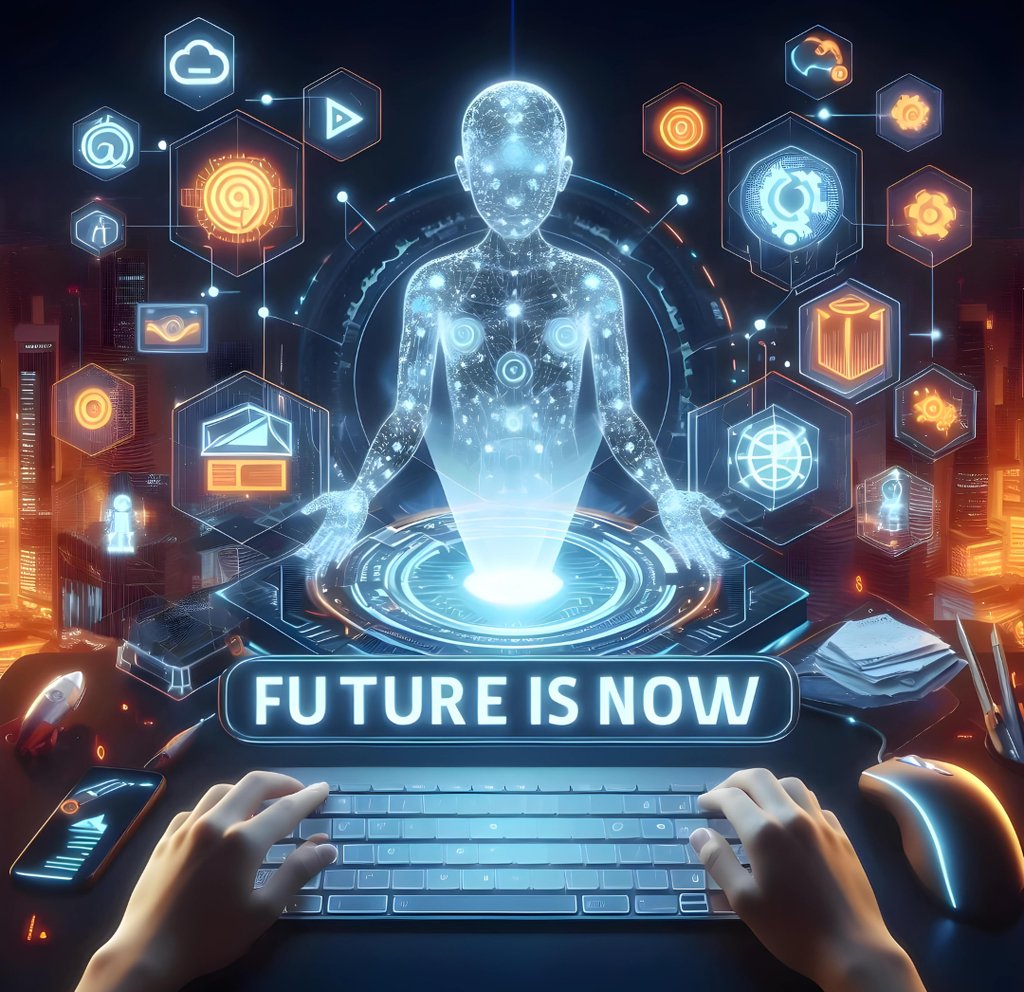The Future is Now: How AI is Reshaping Digital Marketing Landscapes
In the ever-evolving landscape of digital marketing, staying ahead of the curve is crucial for businesses to thrive. With the emergence of Artificial Intelligence (AI), marketers now have a powerful ally to enhance their strategies, streamline processes, and drive better results. In this comprehensive guide, we'll delve into the key benefits and features of AI in digital marketing, addressing client pain points and uncovering strategies to boost credibility and trust among potential clients.
Yuvraj Prabhakar - Marketing Specialist
3/21/20244 min read
Artificial Intelligence refers to the simulation of human intelligence processes by machines, particularly computer systems. In digital marketing, AI technologies encompass a wide range of applications, from data analysis and predictive modeling to personalized customer experiences and automated advertising.
Key Benefits of AI in Digital Marketing:
Data-Driven Insights: AI empowers marketers with advanced analytics capabilities, allowing for deeper insights into consumer behavior, market trends, and campaign performance. By harnessing AI-driven analytics tools, businesses can make informed decisions and optimize their strategies for maximum impact.
Personalized Customer Experiences: One-size-fits-all marketing approaches are no longer effective in today's hyper-connected world. AI enables marketers to deliver highly personalized experiences tailored to individual preferences, demographics, and browsing history. This personalization fosters stronger connections with customers, leading to increased engagement and loyalty.
Predictive Analytics: AI algorithms can analyze vast amounts of data to predict future trends, behaviors, and outcomes with remarkable accuracy. By leveraging predictive analytics, marketers can anticipate customer needs, identify potential opportunities, and proactively adjust their strategies to stay ahead of the competition.
Automation and Efficiency: Tedious manual tasks, such as data entry, content scheduling, and email marketing, can be automated using AI-powered tools. This not only saves time and resources but also allows marketers to focus on more strategic initiatives that drive business growth.
Enhanced Targeting and Segmentation: AI algorithms can segment audiences based on various criteria, such as demographics, interests, and purchase history, enabling marketers to target their messages with laser-like precision. This targeted approach leads to higher conversion rates and ROI for marketing campaigns.
Improved Customer Service: AI-driven chatbots and virtual assistants can provide instant support to customers, answering queries, resolving issues, and even completing transactions round the clock. This enhances the overall customer experience and fosters customer satisfaction and loyalty.
Features of AI in Digital Marketing:
Machine Learning: AI algorithms can learn from data inputs and improve over time without explicit programming. Machine learning enables marketers to develop more accurate predictive models, personalize content at scale, and optimize campaign performance based on real-time insights.
Natural Language Processing (NLP): NLP technologies allow computers to understand, interpret, and generate human language. In digital marketing, NLP powers chatbots, sentiment analysis tools, and content recommendation engines, enabling more effective communication with customers and prospects.
Image and Video Recognition: AI-powered image and video recognition technologies can analyze visual content to identify objects, scenes, and even emotions. Marketers can leverage these capabilities to create more engaging multimedia content, target relevant audiences, and measure the impact of visual campaigns.
Predictive Modeling: By analyzing historical data and patterns, AI can create predictive models to forecast future outcomes, such as customer churn, sales trends, and campaign performance. Predictive modeling helps marketers make data-driven decisions and optimize their strategies for better results.
Automated Campaign Optimization: AI-driven platforms can automatically optimize marketing campaigns in real-time, adjusting ad placements, targeting parameters, and bidding strategies to maximize ROI. This continuous optimization ensures that marketing efforts are always aligned with business objectives and performance goals.
Addressing Client Pain Points:
Limited Resources and Budgets: AI-powered automation tools enable businesses to achieve more with less, allowing them to scale their marketing efforts without significantly increasing costs. By automating repetitive tasks and optimizing campaign performance, AI helps businesses make the most of their resources.
Lack of Personalization: In today's competitive marketplace, generic marketing messages often fall flat. AI-driven personalization tools enable businesses to deliver relevant, timely content tailored to each customer's preferences and behavior, fostering stronger connections and driving engagement.
Data Overload and Complexity: With the exponential growth of data, marketers often struggle to extract meaningful insights and identify actionable trends. AI-powered analytics platforms simplify data analysis, providing marketers with actionable insights and recommendations to guide their decision-making process.
Inefficient Customer Service: Long wait times and inconsistent support can tarnish a brand's reputation and drive customers away. AI-driven chatbots and virtual assistants offer instant, 24/7 support, ensuring prompt responses to customer inquiries and enhancing the overall customer service experience.
Boosting Credibility and Trust:
Case Studies and Success Stories: Highlighting real-world examples of how AI has helped businesses achieve tangible results can demonstrate credibility and build trust among potential clients. Showcase case studies that illustrate the impact of AI-driven strategies on key metrics such as ROI, customer satisfaction, and revenue growth.
Certifications and Partnerships: Obtaining certifications or partnering with reputable AI technology providers can lend credibility to your expertise in implementing AI solutions for digital marketing. Displaying badges, logos, or affiliations with industry-leading AI companies can reassure clients of your proficiency and reliability.
Transparent Communication: Be transparent about the use of AI in your marketing strategies and how it benefits clients. Clearly explain the technologies and methodologies employed, addressing any concerns or misconceptions they may have. Open communication fosters trust and establishes you as a credible authority in the field.
Continuous Education and Innovation: Demonstrate your commitment to staying abreast of the latest AI trends, technologies, and best practices through continuous education and innovation. Share insights, thought leadership articles, and industry updates to showcase your expertise and dedication to delivering cutting-edge solutions.
Conclusion:
In conclusion, AI holds immense potential to revolutionize digital marketing, offering a myriad of benefits and features that address client pain points and drive business growth. By leveraging AI-driven insights, automation, and personalization, marketers can enhance their strategies, optimize campaign performance, and foster stronger connections with customers. To boost credibility and trust among potential clients, it's essential to showcase real-world success stories, obtain relevant certifications, communicate transparently, and demonstrate a commitment to continuous education and innovation. Embracing AI in digital marketing isn't just about staying competitive—it's about leading the way towards a more intelligent and impactful future.


